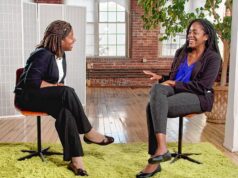

In the American legal system, we trust citizens on juries to decide matters of life and death. But before jurors exercise that power, they put in the time, sitting through testimony and debating the merits of a case. Few jurors complain. Justice demands they sift competing accounts for truth.
If only voters squinting at lengthy ballot questions worked as diligently.
November’s four ballot questions bring opportunities to greenlight a second slots parlor, expand charter schools, prohibit the sale of eggs or meat from farms that confine animals, and legalize marijuana.
These questions demand that voters, if they are to responsibly exercise their power, know stuff. But while nonpartisan groups like the League of Women Voters work hard to inform citizens, it’s common for people to enter voting booths unprepared to set policy.
Thankfully, a novel project coming to a head this week seeks to weave stronger fibers into direct democracy — at least, on that fourth ballot question.
The Massachusetts Citizens’ Initiative Review is the brainchild of state Rep. Jonathan Hecht, a Watertown Democrat who has teamed up with Healthy Democracy and the Tisch College of Civic Life at Tufts University to build a backstop on the marijuana legalization question. The review’s advisory board — which includes former Gov. Michael Dukakis, academics, lawmakers from both parties, and elections experts — chose that question last month as a test of a new approach to direct democracy.
This week, the project picked 20 residents of Massachusetts from a pool of 10,000 citizens to mirror the state’s actual electorate on age, political affiliation, race, gender, geography and geography. There are seven Democrats, two Republicans and 11 who are unenrolled, the same proportions that exist in the population as a whole.
Starting at 10:30 a.m. this Thursday, the group, aided by a mediator, will convene a four-day public hearing on the marijuana question at the Atrium School at 69 Grove St. in Watertown (all proceedings are open to the public). They will hear from proponents and opponents of Question 4 and from a roster of experts, including people from Colorado, where voters legalized marijuana in 2012.
This electoral jury, having taken testimony, will by next weekend produce a statement of its findings on Question 4, with summaries of what its members feel are the pros and cons of legalization. After that, Hecht’s team will work to get the information to voters any way it can.
That’s the final hurdle: reaching people. But done right, this sort of guide gives voters information that is not available anywhere else. Which would you rather read — the existing 525-word summary of the question, the 25-page bill put before the Legislature, or a statement of conclusions reached by people just like us? With polls showing public opinion on Question 4 split about evenly, this comes just in time (for details, visit cirmass2016.org).
In Massachusetts, it took a long time for citizens to win the right to make their own laws through the referendum, starting with a plea from the Populist Party in 1895 that went nowhere. In 1900, a state representative named Henry Stirling pitched the idea of a citizens initiative process, with the same result.
A socialist state representative tried the next year, without success. Ella O. Marshall organized the Massachusetts Referendum League, though she was unable to vote herself. It wasn’t until 1917, after a constitutional convention, that state voters won access to the initiative petition, using it first in 1920 to exempt beer and cider from Prohibition (first things first, after all).
Ballot questions leap legislative stonewalls and special-interest lobbying, though they’re not immune to out-of-state persuasion. As Nov. 8 nears, Question 4 proponents — who so far have raised far more money than opponents — will be aided by in-kind donations of $125,250 from the Marijuana Policy Project of Washington, D.C., according to filings with the Massachusetts Office of Campaign and Political Finance. Cash donors to the Yes on 4 side include business interests in Colorado that would presumably like to expand their operations into Massachusetts.
In 2011, a group called Healthy Democracy took a close look at the citizens’ initiative process in Oregon and found that three-quarters of voters reported being confused by a ballot question, and 66 percent fessed up to having voted on proposals they didn’t understand.
Alarming numbers, but hardly surprising. Unlike jurors, voters often don’t know what they’re being asked to decide. After voters in the United Kingdom opted to leave the European Union this year, a trending Google query suggested day-after regret. Perhaps Brexit was a flub, but it is hardly the only case of ballot reflux.
While direct democracy has unmistakable appeal, it’s broken if voters use hunches, not facts. To be sure, lawmakers have been known to vote on bills they haven’t read, but that’s another problem.
Guest columnist Larry Parnass is the editor of the Daily Hampshire Gazette in Northampton.








